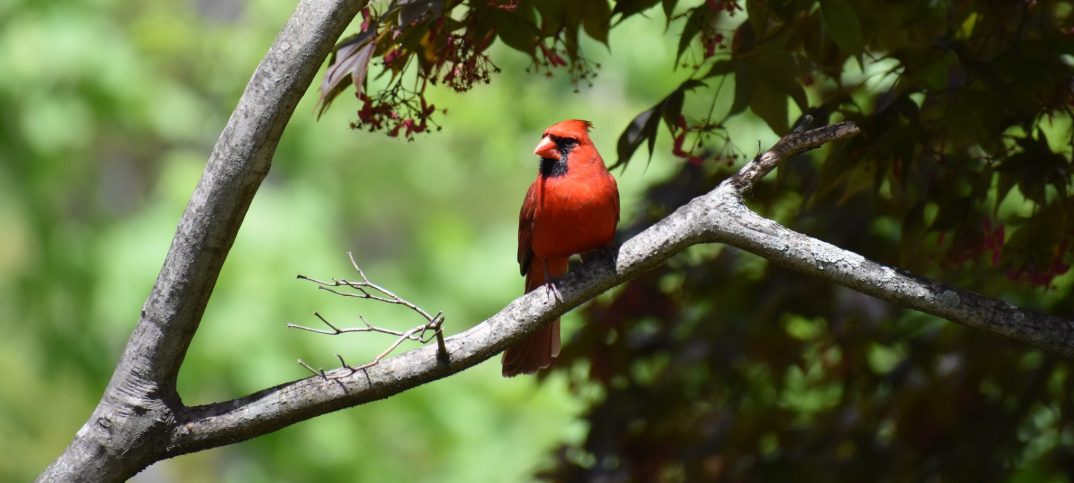By Leah S. Dunaief

Three things I want to tell you about today.
The first is of a friend who knocks on my window each day that the sun is out. At first, he annoyed me, distracting me from my keyboard or my Zoom screen. But as the social distancing and the isolating in place have continued, I changed my tune.
When he doesn’t come, I miss him for he keeps me company. He has brought color to my winter world with his improbable crimson feathers easy to spot among the brown limbs of the naked trees and the often slate sky. By now you have probably guessed that I am referring to a cardinal, one who calls my property his home, too.
He is not just content to share my trees, however. He wants in to my house. Well, not exactly. When the sun is shining, he sees a reflection of my surrounding bushes in my glass windows and thinks he can just continue to fly in their direction. I give him a high mark for determination because he tries over and over again.
At the same time, I have to give him a low mark for intelligence because he doesn’t seem to learn from his abrupt crashes that the way is blocked for him. I guess the term “bird brain” would be appropriate, but I don’t want to discourage him since he reminds me that there is life outside my house, and he doesn’t seem to cause himself any damage with his efforts.
The second thing to share is that we have binged our way through the eight episodes of “Bridgerton,” a new historic series on Netflix, and I would give it a B+. It’s a little slow and talky, in the way of Jane Austen, but it has real worth for some of its subject matter. The main theme deals with the impossible position of upper class women in 19th century Europe.
The poor things had but two goals in life: to marry well and to produce heirs. This was for the good of the family and only incidentally for their own benefit, so they suffered from lots of family pressure and control. That’s old hat, though, for us 21st century viewers.
However, the series is somewhat original for populating London in the 1800s with a totally integrated cast. The Duke is black and the debutante is white, but that’s just for starters. The one theme that’s absent is any discussion of racism. There is none. You can pretty well guess how the love story ends up, but it’s fun watching the couple and their supporting cast get there.
The third subject is more serious and important to share. You know by now that our new president is making it mandatory to wear face masks in federal buildings and on planes, trains and buses that cross state lines. He is also urging the rest of us to wear masks at least for his first 100 days in office. “Observational studies have suggested that widespread mask wearing can curb infections and deaths on an impressive scale, in settings as small as hair salons and at the level of entire countries,” according to an article by Katherine J. Wu in the Science section of this past Tuesday’s The New York Times.
Now comes further advice about mask wearing. Double-masking is even better and for obvious reasons. In order for the droplets that carry the virus to get to our nose and mouth, they have to work their way through the tangle of threads in a cloth mask or the filter in a surgical one. Double the masks and we double the difficulty. The best arrangement, we are advised, would be a face-hugging cloth mask over a surgical mask. As if one weren’t miserable enough, now we are urged two.
Yes, the vaccines are here and more are coming, but it will take a while for the logistics of delivery to get ironed out. And the numbers of patients stricken with the disease keep escalating, so we have to continue to maintain our distancing, our hygiene and yes, our masks.







